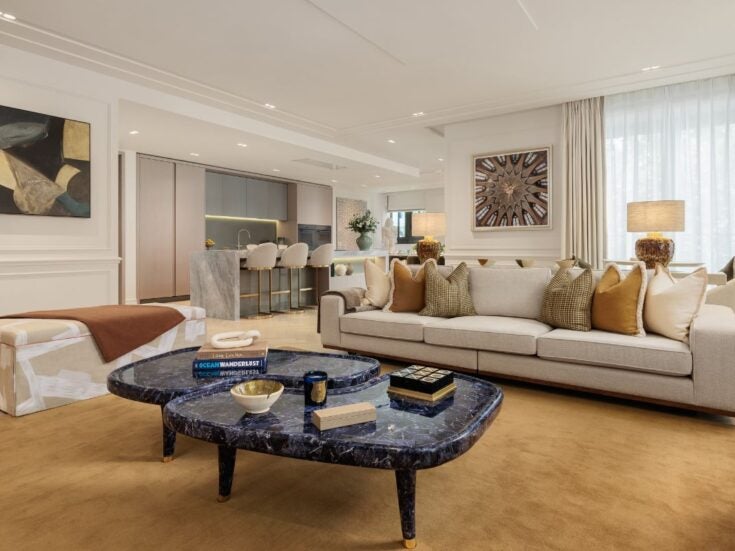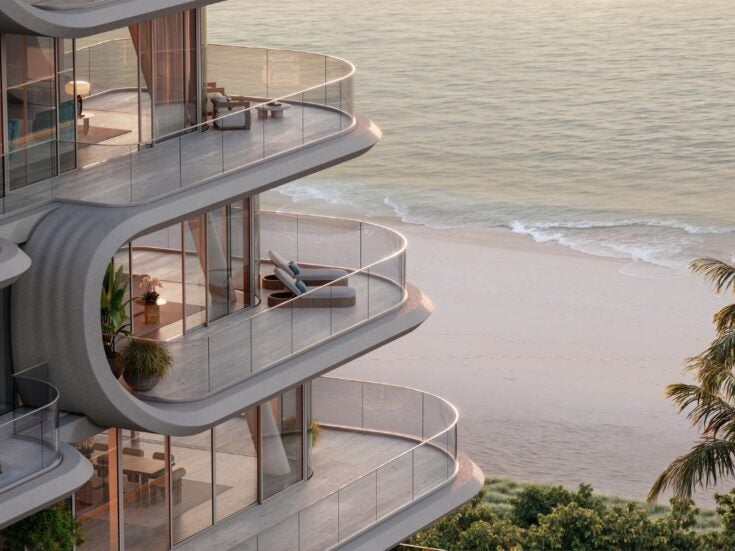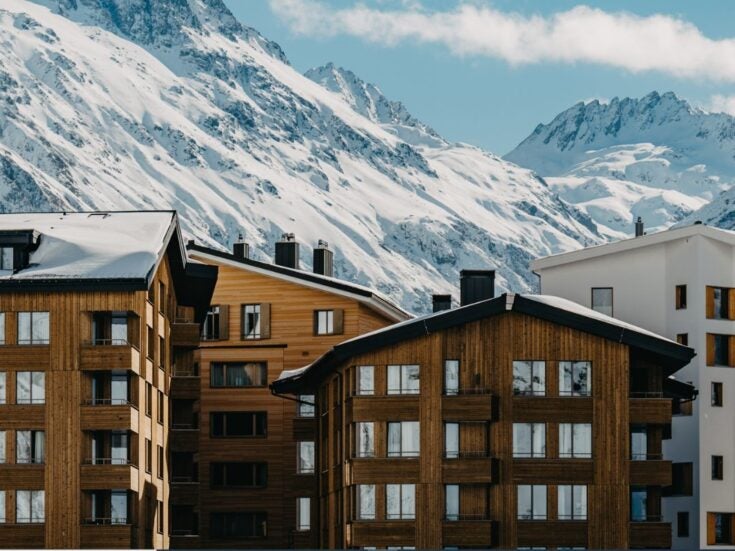
With the Arab Spring in full flower, a billionaire builder of several towns in the Middle East might be worried – but Samih Sawiris is sanguine, says Josh Spero
BEING THE DEVELOPER and owner of several towns and developments in the Middle East – from Egypt to Jordan to Oman – would seem like an uncomfortable position to occupy right now, but Samih Sawiris is sanguine: ‘You do a town, it’s a long-term thing. We might have an upset, we might have a bad year or two, but it doesn’t stop you from growing afterwards, and it doesn’t stop you from owning what you own. In the modern world there’s much less nationalisation.’
What about, say, Chavez in Venezuela? ‘He nationalised and he’s footing the bills.’ He also recounts the story of an Egyptian developer whose land was seized by the state when he tried to sell it to the Israelis; he had the Egyptian government’s assets frozen worldwide.
Nevertheless, as a member of Egypt’s wealthiest family, son of an entrepreneur and brother of two entrepreneurs, collectively worth $13 billion according to Forbes, he must feel that the revolution in Egypt, with its groundswell of rage from poor Egyptians not just against Mubarak’s dictatorship but at the inequalities of the system, has put him and his business in a certain peril. Sawiris is still unperturbed as he works at his omelette on a cold, sunny day in Chelsea: ‘The business community is not regarded as part of the regime because it’s very well-known who made money by the regime, and who made money thanks to the entrepreneurial freedom of conducting business that was granted under the last two regimes.’
This seems almost too calm an attitude to take, especially given the hostility I encountered towards the wealthy and specifically towards the Sawiris family when I was in Cairo in November. Intelligent or otherwise, the Egyptians I met in souks and mosques saw the Sawiris name as emblematic of Egypt’s failed state, with a few rich oligarchs and 70 million poor people. (Shafik Gabr is another billionaire entrepreneur who prospered under Mubarak: read Spear’s interview with Shafik Gabr here.)
It doesn’t bother him: ‘Our biggest protection in revolution is this: “Tell me what I’ve done wrong vis-à-vis the country, tell me why I’m not useful, and tell me why this town, El Gouna, is not better than the piece of land next to it, which has been desert for a million years and is still desert and has not provided the country with any kind of self-created wealth”.’

Sawiris seems as keen as anyone for Mubarak’s exit, although he denies rumours of Mubarak’s sons investing in an Orascom company and of close personal friendships between the Mubaraks and the Sawirises. ‘It was time for change. Mubarak had to go, no doubt in my mind, but the new prime minister [who has since resigned] would have done a great job, the army would have stood by and been the watchmen in a more aggressive role than before.’ He cites Turkey’s democracy as a model worth considering for a time of transition: a secular parliamentary system where the military steps in to correct an overbearing government.
The difference between Turkey and Egypt is instructive in showing what a bane Mubarak’s rule was for the country, Sawiris says. When he went to university in Berlin in 1976, his Turkish friends had to bring back generators from Germany because there was insufficient power in the national grid, while Egypt was more sophisticated. ‘We were at least five to ten years ahead of Turkey in 1976, and today we are basically where we were, and look where they are.’
2010 figures from the IMF bear this out: Turkish GDP per capita on a PPP basis is $13,400 (63rd in the world) – Egypt’s is $6,400 (103rd); Turkey’s nominal GDP is $729 billion (seventeenth in the world) – Egypt’s is $217 billion (40th). The ‘incredible’ corruption engendered by low wages for public servants – teachers, police, doctors – has hindered growth.
THE HORIZONS OF Samih’s Orascom Development, (Naguib is chairman of Orascom Telecom Holding, Nassef CEO of Orascom Construction Industries), have expanded beyond the Middle East of late. In addition to such owned-and-run projects as El Gouna on Egypt’s Red Sea coast, with its 20,000 residents, 100 restaurants, five schools, university, ‘European-standard hospital’ and 11.2 million square metres of developed land (with another 25 million for future expansion), and Taba Heights in the Sinai, Sawiris took up a challenge laid by the Swiss government to develop the old army village of Andermatt, on the same chain as Zermatt. Orascom Development is registered in Switzerland too, not for tax, Sawiris says, but mainly for the credibility it gives and because the three Orascom companies were too large for the Egyptian market.
An old drinking friend, then the Swiss ambassador to Egypt, some time ago director for security policy in the Swiss army, told the government they should ask Sawiris about the development: ‘I find it absolutely funny that the Swiss government is inviting me to consult them. I say, “Okay, that’s an interesting idea. Send me an official letter of invitation, pick me up with a black limo under the plane, put the Egyptian flag on and I will come.” To me, it was more a joke. I went and I said, “This is like a hundred-dollar note lying on the street, but nobody’s picking it up.’
The availability of land, access to the village (it’s 90 minutes from Zurich airport, a little more from Milan), the opportunity to reshape it in a modern way – all these things appealed. CGI pictures show apartment blocks with stone cladding, six four and five-star hotels in local wood (the first one opening winter 2013-14), and fur-clad women talking their greyhounds for walks through the pristine snow. There will be a sports centre, new restaurants, a golf course and a new ski area.

The Chedi Hotel, Andermatt
The UK is about to receive a Sawiris town too. 700 hectares of former industrial land in mid-Cornwall, not far from St Austell, will be turned into eight ‘walkable neighbourhoods’ with 2,000 homes and three country parks and improved public transport, as well as a regenerated marina on the coast by St Blazey. Unlike in the Middle East, where royal invitation was sufficient to start a project, here Sawiris had to enter an open competition alongside 350 other proposals. Orascom Development came third, despite their experience in large-scale projects and marinas, because, says Sawiris, they were not British, but when the first two (British) firms dropped out because of the recession and inadequate financing, he took it on. He hopes to break ground by the end of the year.
This is what Sawiris does: he builds entire towns (or significantly augments a run-down one in the case of Andermatt) for thousands of people. They are massive in conception and in scale (El Gouna was desert before Sawiris arrived), taking on what governments cannot or will not: they have rarely proved successful when trying to build and run towns, with the multitude of skills and disciplines this requires.
Sawiris is proud of promoting a business model that governments want to copy, and it is because his company is privately-held (he owns 60 per cent) that he can afford the long view: ‘It doesn’t make any kind of financial sense during the first ten years – there’s much of value but less cash. A lot of people would rather not have these kind of projects on their agenda because they want to show cash to the shareholders instantly so they’ll be happy and they can get their bonuses.’
IN THE SAME way that his business is taking up slack left by the government, so is Sawiris’ philanthropy. The Sawiris Foundation – for the whole family – concentrates on employment and skills, community development, health, educational scholarships, literary awards and micro-credit: by and large things which the government should be doing. As is the case across the world, the philanthropy of billionaires is replacing the duty of governments, inefficient and short-termist. Sawiris says that he is funding secured education for 35,000 people in Egypt and that he also supports heritage conservation; he gets visibly irritated when he talks of how the government of Dubai razed the old town to put up its unoccupied skyscrapers.
When he gave $2 million to restore an old temple near Aswan, he was met with great suspicion that he might want to turn it into a tourist attraction or privatise it or such. This scepticism is a source of a bemused smile. More seriously, he says that he is ‘conflicted’ when he gives to archaeological projects: ‘It’s egoistic to give to these causes when I could build more schools.’
Does Sawiris conceive of himself as a man who owns several towns? It feels almost feudal in the twenty-first century. He laughs loudly at that suggestion and says, ‘Potemkin!’ and laughs louder. The market which benefits him also prevents him from being any such liege: ‘People have become so dynamic in their ability to move around that there’s no longer the restriction that made a lot of people live in these feudal towns, not because they want to but because they had no other choice whatsoever. Today these towns that we develop, anybody who doesn’t like them will just leave.’
He circles back to Potemkin, ‘He could order 50,000 people to be moved to the towns that he built. I have to attract every single citizen to come and live in my towns, and if he doesn’t like them he leaves, he even foul-mouths them, so I’m like a servant much more than an owner when it comes to making them successful.’ Sawiris admires St Petersburg too, another devised city. ‘Look at the magnitude!’ he exclaims. ‘It’s beyond your imagination.’







